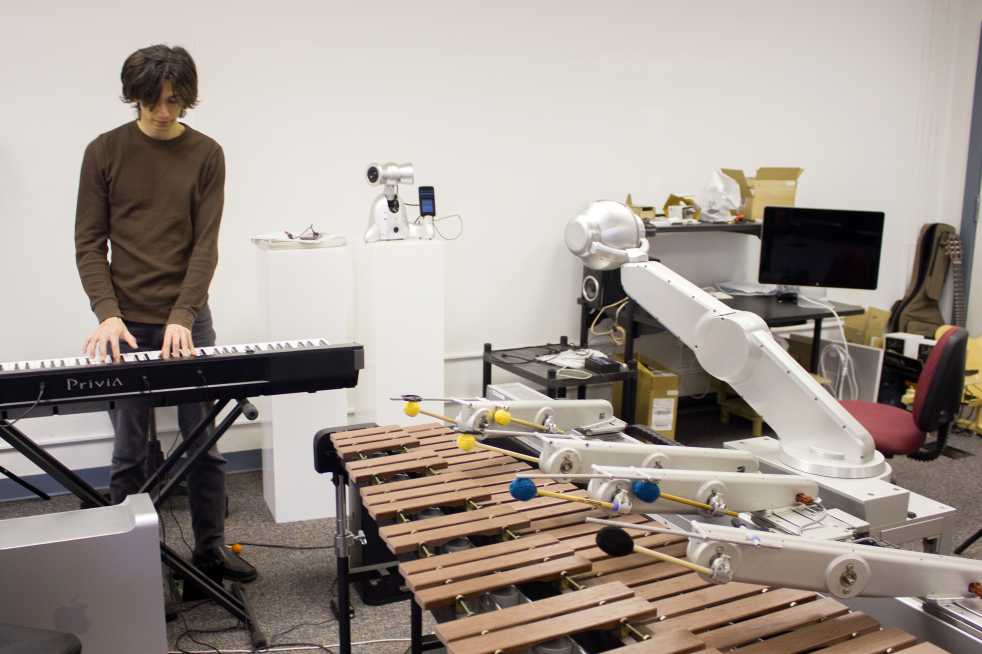The School of Music has taken a stride into the domain of online education and is now offering its first Massively Open Online Course (MOOC) through Coursera.
Taught by Professor Jason Freeman, the online Survey of Music Technology course started on Aug. 26 of this year and is an adaptation of the identically-titled MUSI 3450 into an online six-week format.
The course plays to the strengths of technically-minded students by teaching them how to articulate themselves musically with commercial music software and by providing the theoretical underpinnings of acoustics and signal processing needed for a deep understanding of the material. Freeman’s course requires little in the way of previous knowledge, however, so all are welcome.
When he started college, Freeman thought of himself a CS major, taking CS and music classes side-by-side.
“I had always previously compartmentalized music as a part of my life that was more like a hobby, something I did more for fun than for a living,” Freeman said. “I slowly realized that it was okay to start thinking about making a career out of music, and that perhaps the key to this, that I probably didn’t realize until graduate school, was figuring out how to apply my technological expertise to making music in a way that is unique to me and my sensibilities.”
This interest and skill with technology translates into Freeman’s current research. As head of the Distributed Music Group, he works on enabling new forms of connection between the various participants in the musical process.
One example would be a dance performance in which the audience decides how the style of dance evolves and the color of lighting that best complements it. If technology can be used to effectively engage once passive audience members, then theoretically it can be used to pass on knowledge to willing online minds.
However, a few hurdles had to be overcome for the MOOC.
The first hurdle was getting commercial music software into the hands of online learners at a reasonable price.
“We ended up leveraging some research I’ve been doing with Brian Magerko, a professor over in Digital Media, which relates to K-12 education. We’ve been developing a platform for teaching music technology. So we’re using a lot of the same tools in a slightly different way for this course,” Freeman said.
The second was the grading. Hands-on projects are integral for gaining a concrete understanding of the skills needed to create your own music electronically, but having Freeman and his TA each grade 10,000 projects would have been impractical. Coursera’s solution is the peer-grading of homework and projects. This meant that the course had to be restructured.
The six-week class term was almost three times shorter than a regular semester, resulting in some pairing down of the course material and emphasizing the fundamentals of the course.
Freeman’s Survey of Music Technology course is still in session. Freeman hopes that his experience with the online format will lend him insight into how to scale up the in-person Tech course to a larger audience and that the collective experience will help him make changes at Tech as well.
